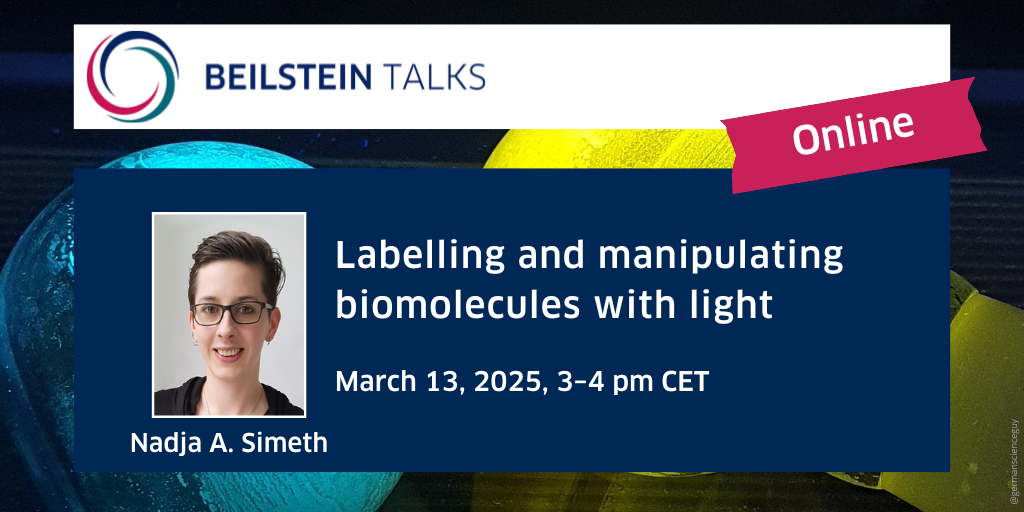Beilstein Talk "Labelling and manipulating biomolecules with light"

Beilstein Talks
The Beilstein Talks are an established addition to the projects of the Beilstein-Institut supporting communication and information in science. These online talks are free to attend; a simple registration is all that is required.
Labelling and manipulating biomolecules with light
Nadja A. Simeth. Hall / University of Göttingen, Germany
March 13, 2025, 3–4 pm CET
Online live talk
👉 Go to the free registration for the online live talk!
Introduction
In recent years, light has been employed as an external stimulus to photocontrol diverse processes in various fields ranging from material science to biology. This approach relies on the use of small, light-responsive molecules that undergo a structural change upon irradiation, generating different functional states from a single molecule. By attaching suitable substituents to such photoactuators, these molecules can be embedded into biomacromolecules to link their structural change to a change in the biomolecule’s properties.
For instance, the secondary structure motifs present in peptides dictate their properties and supramolecular interactions. As they are highly sensitive to minimal structural changes, it is possible to affect their folding and thus their characteristics by small, stimuli-responsive alterations. This would allow for new synthetic model peptides to be generated, in which, for instance, peptide-protein interactions or peptide self-assembly processes could be spatio-temporally controlled, addressing the issue of lacking temporal resolution in classical models.
In this work, we incorporate photoswitches, i.e. molecules that isomerize back and forth between two forms changing their characteristics, as unnatural amino acids (UAAs) into peptide helices and hairpin structures to reversibly (un)fold them by light. We will show how we can use these molecules to control supramolecular interactions, including disease-correlated peptide aggregation with unprecedented spatiotemporal resolution using a combination of spectroscopy and microscopy techniques.
17 Feb 2025






